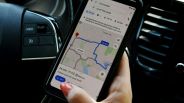Companies Wal-Mart, Google and Amazon have joined forces with the government in determining a system that registers and identifies drones.
By Nov. 20, the above companies, along with 25 others, have been tapped by the U.S. Federal Aviation Administration to come up with the blueprints to create the most effective registration system. Another issue to be addressed would be deciding which types of drones should be exempted from the registration system.
The task force is made up of individuals from organizations and companies that are involved in the creation and manufacturing of drones such as BestBuy, Parrot and GoPro. Also included in the team are hobbyist organizations, pilots and crime fighters.
The registration system will allow the Feds and cops to track the drones, in the event that they do not comply with the Federal Aviation Administration's rules.
Through this regulation, companies such as Google, BestBuy and Wal-Mart hope to receive permission to test drones for home delivery. Exciting as the idea may be, no promises can be made about it happening anytime soon.
"It will probably happen, but there are sizable obstacles to overcome," said UAV Digest co-host David Vanderhoof. UAV Digest is a weekly podcast that draws into unmanned aerial vehicle systems.
One big hurdle to the drone-to-door delivery system is maintaining safety in the skies. Drones are currently banned from flying within five miles of an airport, without special permission. To address this, Amazon proposed a plan that gives appropriate airspace for low-speed and high-speed drones, respectively.
Another challenge is the question of technology. Vanderhoof remarks that the lithium ion batteries of consumer drones may not be able to survive them during long hauls, carrying heavy packages.
Vanderhoof sees trial versions as a good way to evaluate the technology, though it may be too early to say so.
"Eventually if the technology matures, the prices will go down, and maybe in the late 21st century drone delivery will be as common as FedEx or UPS," he stated.
Retail Systems Research managing partner Brian Kilcourse agrees, but says that the companies may need to find a middle-ground price with their clients.
That means that apart from the impending registration system, sky safety and technology, the most significant obstacle to the drone-to-door system is the possibility that customers might not even want it.
Don't forget to follow T-Lounge on Twitter and visit our Facebook page.
Photo: Dan McCullough | Flickr
ⓒ 2025 TECHTIMES.com All rights reserved. Do not reproduce without permission.




